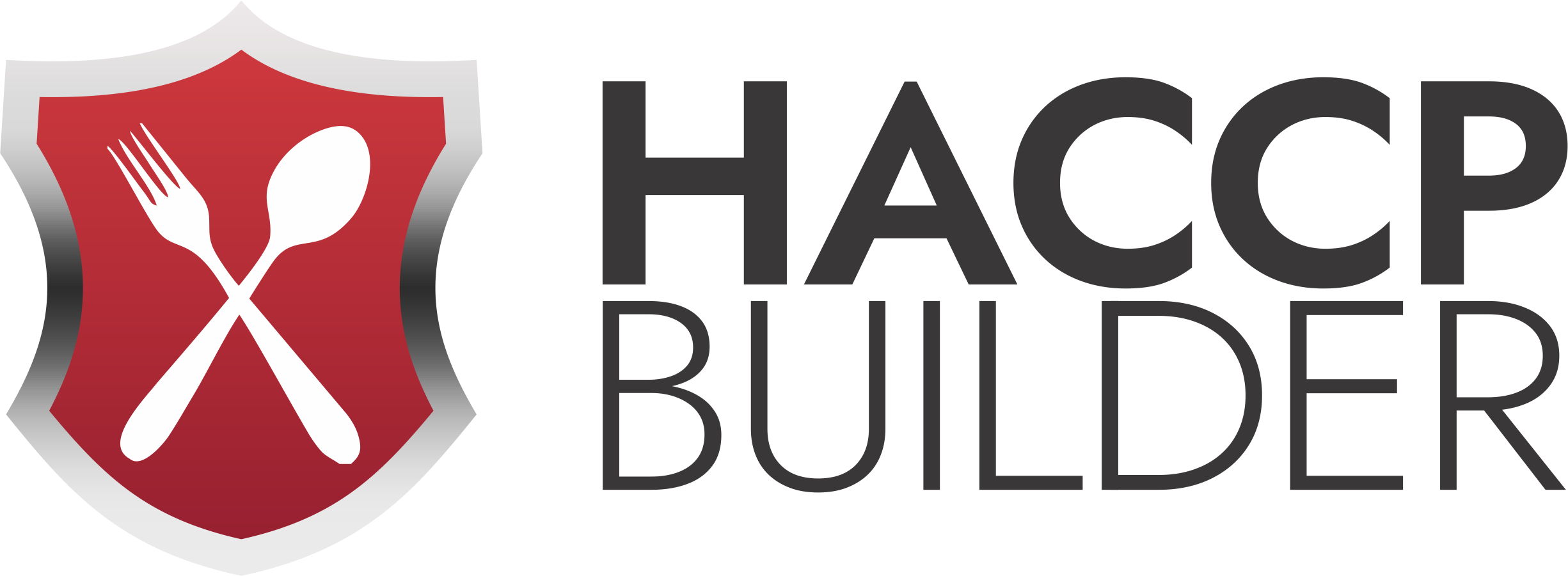We know HACCP Plans are important for food processors and manufacturers. Today, we’ll take a look at the roles of HACCP Plans in the service industry. More specifically, the best HACCP practices in restaurants and hotels.
What Are HACCP Plans?
HACCP (Hazard Analysis and Critical Control Points) plans ensure food safety and hygiene. The goal is to reduce and eliminate incidents that may pose health and safety risks. This is done by establishing corrective actions.
As a whole, they identify, evaluate, and control/remove the potential hazards that may occur from start to finish. Throughout the entire processes involved, HACCP plans ensure raw materials are safe for consumption. This may include chemical, physical, and biological hazards. By doing these key steps in prevention, it builds trust between businesses and their customers.
HACCP Plans and The Hospitality Industry
One of the top priorities for the hospitality industry is the health and safety of its guests. HACCP principles play an integral role and are an effective part of achieving the highest safety standards.
The Best HACCP Practices for Restaurants and Hotels
The following HACCP practices aren’t limited solely to restaurants and hotels. However, these are the ones that are especially relevant given their industry.
HACCP Plan Development
The detailed HACCP plan that is created may look different for each restaurant and hotel. This is standard. They should be tailored to the specific operations of each business.
However, each of the HACCP Plans should include methods of identifying, evaluating, and controlling potential hazards. Having the proper HACCP Plans in place offers only benefits and should be developed thoughtfully.
Verification
HACCP Plans should be validated. Such verification confirms that the HACCP Plan is effective at controlling the hazards of the product and/or process. It also provides reassurance that the plan is, and will continue to be, followed correctly as per regulations.
Training and Education
Once a plan has been developed, every employee must be aware of its purpose and methods of use. HACCP teams should include those from various departments. Including, purchasing, food production, and of course, management.
With the proper training and education, all staff members receive the necessary tools to implement procedures. And, the correct information to maintain the proper standards. This applies to everyone from the chefs to the servers.
Due to possible changes in the protocols, there should be regularly-held refresher courses. These will ensure everyone is up-to-date with the latest standards and procedures.
Proper Communication
While on the topic of staff, it’s important to encourage a line of open communication. This applies to all aspects of the job, but even more so in regards to food safety.
If an employee notices a potential hazard or a divergence from the HACCP plan, they should feel at ease reporting/discussing it as soon as possible. The longer they feel the need to prepare themselves to have the conversation, the longer it will take to implement corrective measures.
Proper Food Handling and Storage
Proper food handling and storage practices must be made a priority among the staff. Regardless of their experience or role, everyone should at least know the basics. This includes maintaining proper temperatures for refrigeration and while cooking. Along with preventing cross-contamination. Practicing good hygiene (especially when handling food is involved), is also crucial.
Strict cleaning and sanitization procedures need to be in place as well. Health and safety largely rely on having the equipment and surfaces in the proper condition. Pest control should also be included in what is regularly monitored as preventing infestations is integral.
Coordinate with Suppliers
The importance of this is often disregarded but is, in fact, vital for any service industry role. Building a strong relationship with everyone from food suppliers to service staff promotes a certain level of trust. Having this rapport helps to ensure that they are adhering to strict food safety standards. And, if not, opens the line of communication for the matter to be discussed.
Having regular discussions regarding the protocols/verifying the quality of the products should be a normal occurrence. It should not be seen as a judgment being made on their quality of service.
Conduct Regular Inspections For Continuous Improvement
Whether they are done by an internal member of staff or a third party, regular inspections should be done regularly. This will ensure continual compliance with HACCP standards.
Afterward, they must establish corrective actions to address any deviations from critical limits that are found during the analysis. Verification procedures will continue to confirm that the HACCP systems are working effectively.
Record-Keeping
The entire process can be made easier by maintaining proper record-keeping. For example, records that monitor the results and the corrective actions that were then used. These records must be logged at the exact moment the observations are made.
They must also include all of the actual values or relevant observations that confirm the Food Safety Plan was implemented. Such as, the numerical temperature being logged rather than a checkmark or other symbol.
Evaluate Feedback
After the inspection is done and issues are resolved, it’s imperative to evaluate any feedback that was given. From the results of the inspection to possible secondary observations, this data should be used to improve food safety practices.
For example, procedures may need to be updated. Or, more training may need to be done. It is also possible that adjustments must be made to the monitoring tools. These inspections should not be cause for added stress. Rather, they should be seen as safeguards that prevent future issues.
The service industry is competitive and maintaining food safety standards should not merely be an afterthought.
Understanding the importance of HACCP Plans and implementing them correctly will only advance the success of the business. Guests will be protected, as will the business’s reputation.
For further information regarding how to be in full compliance with HACCP Plans and through responsible practices, contact HACCP Builder. We improve our client’s efficiency which also saves them a substantial amount of funds. Please call us at (866) 577-4030 ext. 1 or email us at [email protected].





